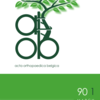Outcomes following surgical fixation of Gustilo-Anderson IIIb open tibial fractures
Open fracture, tibia, infection, internal fixation, frame, Gustilo-Anderson
Published online: Apr 23 2024
Abstract
There is no consensus as to the optimal skeletal fixation method for Gustilo-Anderson IIIb fractures. External fixation methods have previously shown higher rates of superficial infection, whilst internal fixation has shown higher risk of deep infection, but lower risk of other complications. This paper investigates outcomes in open tibial fractures based on fixation method.
A retrospective review was performed for patients presenting to an ortho-plastic unit with GA IIIb tibial fractures between June 2013 and October 2021.
85 patients were identified. The most common implant was an intramedullary nail (IMN), used in 29 patients (34.1%); open reduction and internal fixation (ORIF) was performed in 16 patients (18.8%). 18 patients (21.2%) were definitively managed with a frame alone. Mean follow-up from was 18 months (2-77). Patients with ORIF needed a mean of 3.37 operations; it was 2.48 for IMN which was significantly different from frames at 5.00 (p=0.000).
The mean time to bony union after definitive fixation was 11.4 months. This differed depending on the implant used for fixation, with ORIF at 7.1 months, 10.1 for IMN, and frames at 17.2 months; ORIF significantly differed from frames (p=0.009).
Superficial infection was common, seen in 38.8% of patients, and only 3 patients (4%) developed deep infections involving metalwork, with no difference in rates of either based on fixation method
This study supports that ORIF has faster healing times, with less time to union compared to frames. It also shows that no implant was superior to another in terms of outcomes.
